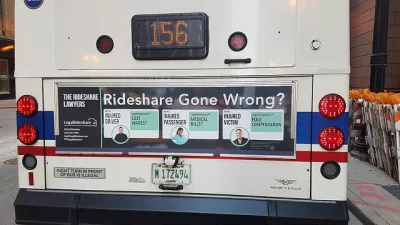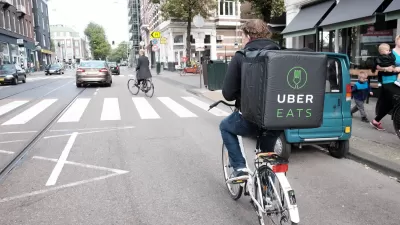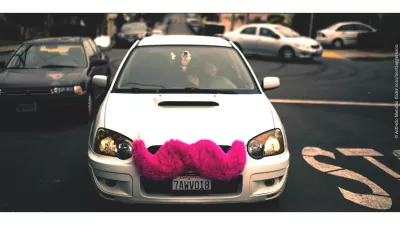The Brookings Institute thinks it has found a way to measure the impact of the expanding 'gig economy'—i.e., freelancing work enabled by online platforms like Airbnb and Uber.
Ian Hathaway and Mark Muro author a post examining the proliferation of the so-called gig economy in cities around the country. Despite so much attention paid to apps like Airbnb, Uber, and more, writes Hathaway and Muro, "it’s still hard to get a handle on the size and importance of either those particular platforms or the larger 'gig economy.'"
"However, it turns out that for all of the limitations of the available data, additional light can in fact be thrown on the online gig economy," according to the article. To do so, Hathaway and Muro called on "an obscure Census Bureau dataset on 'nonemployer firms,' which tracks the activity of 'businesses' that earn at least $1,000 per year in gross revenues (or $1 in construction) but employ no workers."
The findings of their analysis reveal a significant and fast growing gig economy, specifically in peer-to-peer ride-sharing and peer-to-peer room-sharing. Another finding of their analysis: "platform-based freelancing is not yet substantially displacing payroll employment," though the authors admit that could change. Finally, their analysis finds that online gigging is mostly concentrated in urban areas.
The article includes a lot more detail and some very nifty infographics to help illustrate its points.
FULL STORY: Tracking the gig economy: New numbers

Alabama: Trump Terminates Settlements for Black Communities Harmed By Raw Sewage
Trump deemed the landmark civil rights agreement “illegal DEI and environmental justice policy.”

Planetizen Federal Action Tracker
A weekly monitor of how Trump’s orders and actions are impacting planners and planning in America.

The 120 Year Old Tiny Home Villages That Sheltered San Francisco’s Earthquake Refugees
More than a century ago, San Francisco mobilized to house thousands of residents displaced by the 1906 earthquake. Could their strategy offer a model for the present?

In Both Crashes and Crime, Public Transportation is Far Safer than Driving
Contrary to popular assumptions, public transportation has far lower crash and crime rates than automobile travel. For safer communities, improve and encourage transit travel.

Report: Zoning Reforms Should Complement Nashville’s Ambitious Transit Plan
Without reform, restrictive zoning codes will limit the impact of the city’s planned transit expansion and could exclude some of the residents who depend on transit the most.

Judge Orders Release of Frozen IRA, IIJA Funding
The decision is a victory for environmental groups who charged that freezing funds for critical infrastructure and disaster response programs caused “real and irreparable harm” to communities.
Urban Design for Planners 1: Software Tools
This six-course series explores essential urban design concepts using open source software and equips planners with the tools they need to participate fully in the urban design process.
Planning for Universal Design
Learn the tools for implementing Universal Design in planning regulations.
Clanton & Associates, Inc.
Jessamine County Fiscal Court
Institute for Housing and Urban Development Studies (IHS)
City of Grandview
Harvard GSD Executive Education
Toledo-Lucas County Plan Commissions
Salt Lake City
NYU Wagner Graduate School of Public Service





























